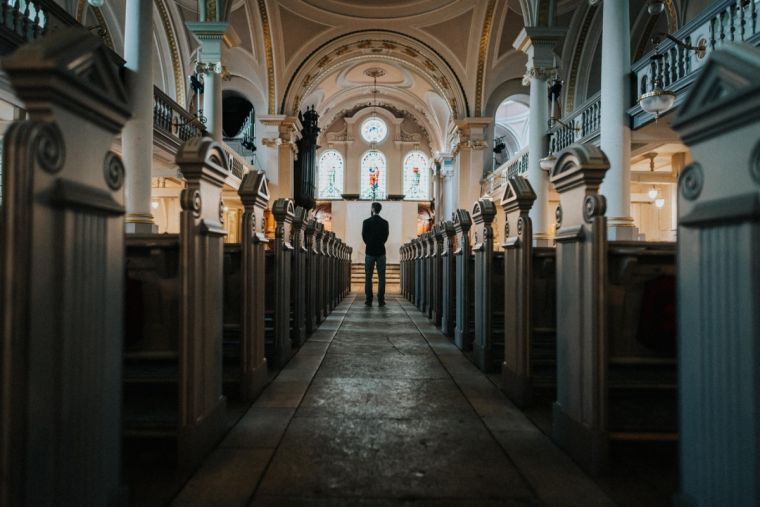Singing hymns in church could cause 'problems' post-lockdown, Government minister fears

Government minister Robert Jenrick has revealed his concerns over re-opening churches post-lockdown.
With restrictions easing for shops, schools, car showrooms, markets and many other places, the Government has come under pressure to allow churches to open again to the public.
At the Government's daily briefing, Mr Jenrick said he was working closely with faith leaders on the re-opening of places of worship but admitted concerns about instances in other countries where churches have been at the centre of fresh outbreaks.
"We certainly don't want to see what we've seen in some other countries where large gatherings in places of worship, particularly because of the demographic in some faiths, because of singing hymns and so on, which can lead to exhalation, can create particular problems," he said.
"But I'm hopeful that the work we're doing with faith leaders will bear fruit and we'll be able to see places of worship open in the coming weeks."
He said the "first logical step" would be to re-open churches for private prayer, followed by small weddings and then, "in time," public services. He said these steps would be "conditional on the rate of infection obviously".
"I want to see places of worship open as quickly as we can," he said.
"I understand how important it is for miliions of people in this country and I can understand how people of faith would consider it strange that shops, cafes, pubs, restaurants, many other settings, might be open in the weeks and months ahead but not somewhere as important as a place of worship," he said.
Under the Government's strategy to ease the nation out of lockdown, places of worship are not due to re-open to the public until July 4 at the earliest.
The timeline has angered some Christians. On Saturday, Christian leaders said in a letter to the Government that the closures were disproportionate and a breach of human rights.
"There is no precedent for state legislation which in any manner limits and/or criminalises church services or sacraments," the letter reads.
Rev Ade Omooba, Christian Concern co-founder and one of the signatories to the letter said, "It cannot be right that at present it is lawful to go to a bike shop, B&Q, visit a chiropractor or dry cleaner, and not be allowed to receive Holy Communion or engage in silent prayer in a church."
Then on Pentecost Sunday, the head of the Catholic Church in England and Wales, Cardinal Vincent Nichols used his homily to question "why our churches remain closed".
"We are told that these openings, which are to be carefully managed, are based on the need to encourage key activities to start up again. Why are churches excluded from this decision?" he said.











